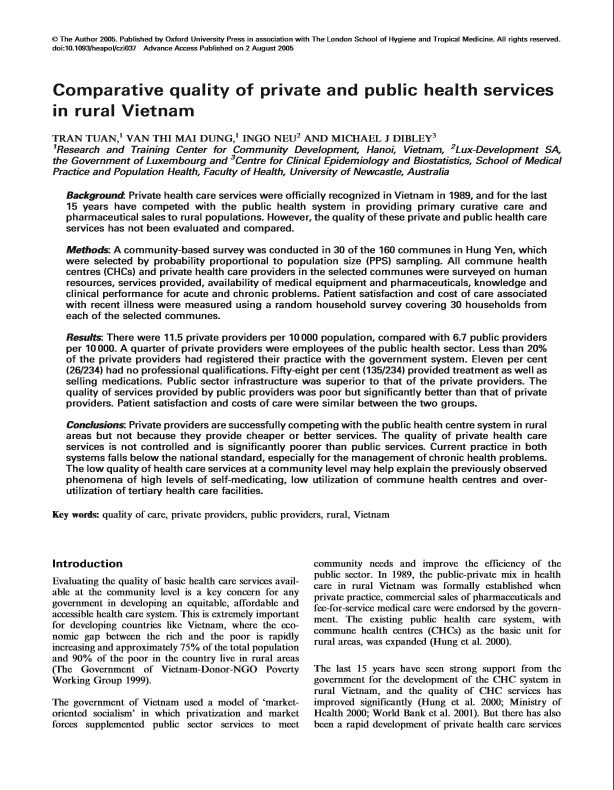
Comparative quality of private and public health services in rural Vietnam
Author :
Year :
Area :
Private health care services were officially recognized in Vietnam in 1989, and for the last 15 years have competed with the public health system in providing primary curative care and pharmaceutical sales to rural populations. However, the quality of these private and public health care services has not been evaluated and compared.
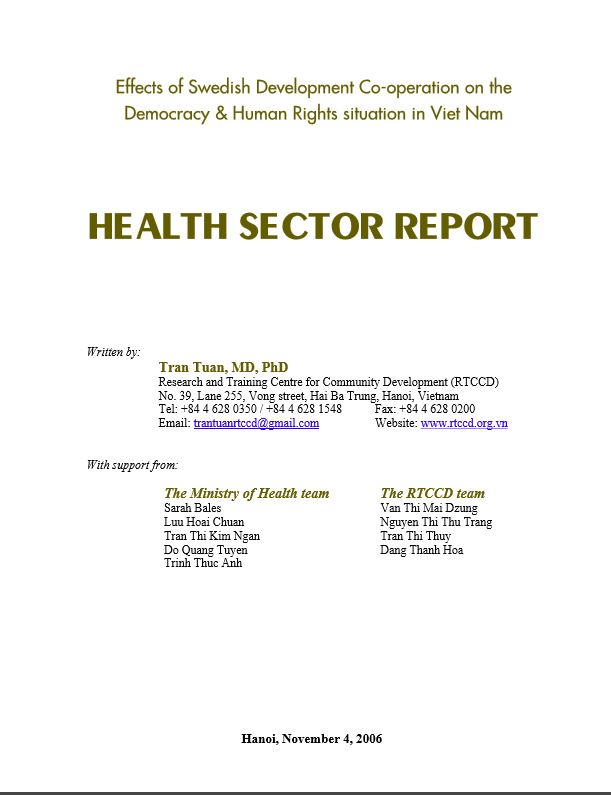
Health Sector Report
Author :
Year :
Area :
This report was written to address the question of what is the evidence to show that Sida support has contributed to improvement of democracy and the rights to health in Viet Nam? Through analyzing this evidence, it is hoped that lessons for improving democracy and human rights in Viet Nam can be drawn.
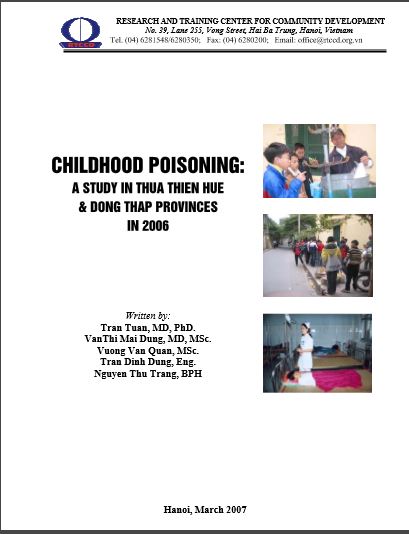
Childhood Poisoning: A study in Thua Thien Hue & Dong Thap provinces in 2006
Author : Tran Tuan, VanThi Mai Dung, Vuong Van Quan, Tran Dinh Dung, Nguyen Thu Trang
Year : 2006
Area : Maternal & Child Health
This study was conducted on the request of UNICEF and the Vietnam Administration of Preventive Medicine within the context of the UNICEF-MOH program on childhood injury prevention (CIP). The study aimed to identify the routine information system of childhood poisoning, to describe the circumstances of childhood poisoning, to identify the poisoning risks, common factors associated […]
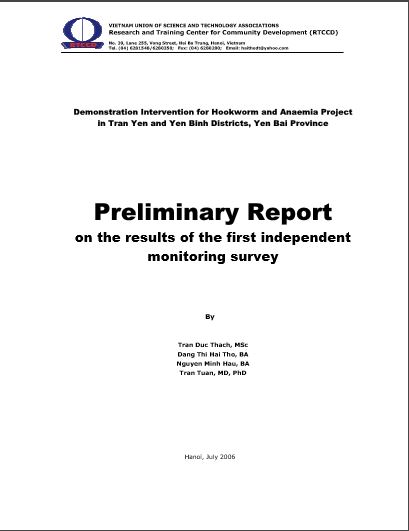
Demonstration Intervention for Hookworm and Anaemia Project in Tran Yen and Yen Binh Districts, Yen Bai Province: Preliminary Report on the results of the first independent monitoring survey
Author : Tran Duc Thach, Dang Thi Hai Tho, Nguyen Minh Hau, Tran Tuan
Year : 2006
Area : Maternal & Child Health,Micro-nutrient & Nutrition
This evaluation was conducted at the request of the project undertaken by Walter and Eliza Hall Institute of Medial Research (WEHI) in collaboration with the Department of Medicine, The University of Melbourne (DoM) and the National Institute of Malariology, Parasitology and Entomology (NIMPE), Vietnam. The evaluation’s objective was to provide information to the WEHIDoM-NIMPE project […]
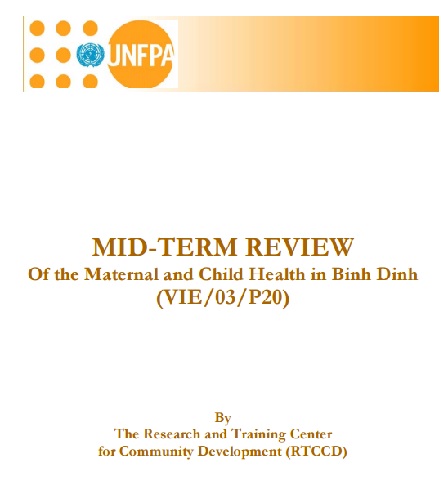
“Mid-term Review of the Maternal and Child Health in Binh Dinh (VIE/03/P20), 2006”
Author : The Research and Training Center for Community Development (RTCCD)
Year : 2006
Area : Maternal & Child Health
The project is being implemented throughout Binh Dinh, to 11 districts and 155 communes. It aims to contribute to the attainment of a higher quality of life for women and children in Binh Dinh, especially for those who live in mountainous and remote areas, adolescents and ethnic minority groups, with a special focus on improving […]